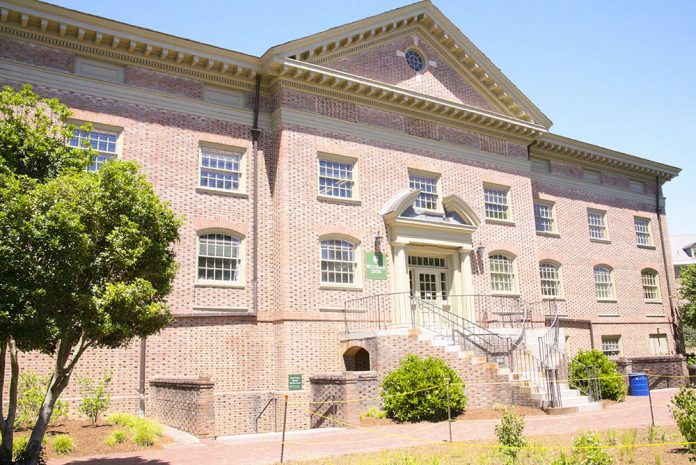The College of William and Mary recently announced the recipients of the 2025-26 Applied Research & Innovation Initiative awards, designating one two-year $170,000 research award and two one-year $14,000 exploratory grants. The grants support multidisciplinary applied research aligned with the College’s Vision 2026 strategic plan.
This year’s winning projects are led by faculty-student research teams and their international partner organizations that unite a broad range of disciplines from data science and kinesiology to economics, theatre and conservation.
The College awarded the two-year research grant to the “A Data-Driven Decision Intelligence Approach to Enhance Community and Environmental Health Resilience in Kenya” project. The project utilizes artificial intelligence to analyze and improve vaccine distribution, nutrition and climate resilience among rural communities in Narok County, Kenya. It is led by a team from data science, kinesiology and conservation.
Team faculty members include assistant professor of data science and project lead Haipeng Chen and Director of Research at the Institute for Integrative Conservation Erica Garroutte, as well as members of the Global Research Institute’s Ignite Lab associate professor of kinesiology Carrie Dolan and assistant professor of kinesiology Julius Odhiambo.
The project previously received the 2024-25 ARII exploratory grant. Yaqi Liu ’25 presented their work at the ARII Research Showcase last October, and Jimmy Bach ’26 worked with partner organization Community Health Partners in Kenya last summer to develop vaccine datasets.
One of the exploratory grants was presented to the “Promises and Pathways: Examining the Integration of Afghan Migrants to the United States Through the Special Immigrant Visa Program” project. The project, which integrates economics, law and sociology, examines U.S. immigration policy and the Special Immigrant Visa program with a focus on the integration experiences of Afghan migrants. The project provides public policy recommendations to bolster socioeconomic conditions for recent migrants.
Adjunct lecturer of economics Nara Sritharan leads the team, which also includes members of the GRI international development research lab, AidData and the Immigration Clinic at the College of William and Mary Law School. Other faculty include AidData Senior Research Scientist Rodney Knight, professor of the practice of law J. Nicole Medved J.D. ’18, clinical associate professor of law, Director of the Immigration Clinic Stacy Kern-Scheerer, and professor and chair of sociology Jennifer Bickham-Mendez.
The College awarded the second exploratory grant to “Balancing Progress and Preservation: Examining the Trade-offs Between Economic Development, Cultural Preservation, and Conservation in Nepal’s Riparian Indigenous & Marginalized Communities,” a project that incorporates conservation, economics, religious studies and theatre.
The project addresses public policy issues in addition to producing a theatrical performance to advocate for sustainable infrastructure development, conservation and the rights of Nepal’s Indigenous Majhi communities. IIC Geospatial Data Scientist Sapana Lohani leads the team, which also includes professor Sritharan, associate professor of religious studies Patton Burchett, and assistant professor of theatre Sarah Hart.
Last year’s awards included a research grant for a project on AI and democracy based in Tanzania and an exploratory grant for a sustainability project centered on exploring the use of diatom exoskeletons as a replacement for synthetic materials in nanomaterial technology.
VMEC professor of applied science Hannes Schniepp, who collaborated with applied science graduate student Aidan Lucas on the diatom project, partnered with professor of marine science B.K. Song to incorporate his research on nutrient-dependent carbon capture with Breegan O’Hearn ’25.
Lucas described his experience on procuring funding for the diatom project as a balancing act.
“It gets tricky because we’re not industry people,” Lucas said. “So there’s only so much we know about that end, so we kind of have to do an educated guess as to what is going to be reasonably affordable or cheap to start testing with.”
Schniepp explained that students take a lead in the research.
“I mean, the advisor usually kind of conceives the project at some point and then also finds the funding for it to pay the student,” Schneipp said. “And the student is really the person who does all the hard work.”
The ARII is a five-year pilot program funded by alumni Michael Foradas ’78 and Valerie Foradas HON ’21 and co-sponsored by the Global Research Institute, the IIC and the Whole of Government Center of Excellence, with additional support for undergraduate involvement from the Office of Career Development & Professional Engagement. The program is designed to facilitate collaborative research, experiential learning and undergraduate research involvement through projects that incorporate at least two of four initiatives listed in the College’s Vision 2026 strategic plan: data, water, democracy and careers.
The Vision 2026 plan objectives underscore increased global citizenship, promoting democracy, revision of liberal arts and professional education curriculum, enhanced financial and environmental sustainability and creating professional opportunities for students.
Programs such as the ARII, alongside the College’s recent designation as an R1 research institution and a recent $100 million endowment to establish the Batten School of Coastal & Marine Sciences at VIMS, align with the Vision 2026 plan and provide relief from financial constraints often faced by research project teams, who often look to alternative sources of funding to further the work. These endowments likewise reflect the advancement of research and global partnerships at the College.
Song discussed the importance of the grant.
“This research requires quite a bit of personnel,” Song said. “Like, undergraduate is working great, but on the other hand, we’re going further deep, extending the project. Either I need to have a graduate student or even a postdoc and much bigger budget to do. So, right now, AL2 provides seed money to study with it. But after that, we should look for the bigger grant.”

